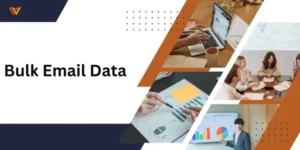What is email authentication?
What is email authentication?
Blog Article
Email authentication refers to the process of checking the authenticity of emails. With the world going digital, besides the fact that come abilities to experience email-based threats such as phishing and spamming. The concept of email authentication can help an individual or organization safeguard their online reputation in security matters concerning communications.
Why is Email Authentication Important?
Email authentication helps in multiple ways:
Thwarting Spoofing: Spoofing involves an attacker sending emails, which appears to come from a valid sender. Email authentication picks out such messages and blocks their delivery.
Improves Deliverability: Authenticated emails have better deliverability. Email service providers use authentication methods to estimate whether an email is actually genuine or not, hence whether it goes to the inbox.
Building Trust:
Businesses that implement email authentication show that they are concerned about their security and thus help create a sense Bulk Email Data of trust amongst their customers and stakeholders.
Key Email Authentication Protocols
Traditionally, several protocols have been used to authenticate emails. Here are some of them:
1. SPF - Sender Policy Framework
SPF allows domain owners to specify which mail servers can send emails on behalf of their domain. That way, unauthorized senders cannot use a domain for spamming or malicious emails.

2. DKIM - DomainKeys Identified Mail
DKIM provides a digital signature that will be added to the messages and then checked by the recipient's server. The signature allows being sure that the message was not altered in any way during its transport and that it really came from the claimed domain.
3. DMARC - Domain-based Message Authentication, Reporting & Conformance
DMARC extends both SPF and DKIM in that with DMARC, domain owners can stipulate a way in which emails that fail authentication processes should be handled. Additionally, DMARC makes provision for reporting-which could be useful in monitoring email traffic and possible spoofing attempts.
Conclusion
Living in a time when email is one of the most important means of communication, it is of utmost importance to understand the notion of email authentication and how to apply it. In such a case, mechanisms like SPF, DKIM, and DMARC will enable an individual or organization to defend against email fraud and improve deliverability, trusting them on their own merits. Since the cyber threat continues to evolve, it is time to increase one's knowledge and to act proactively regarding email security.